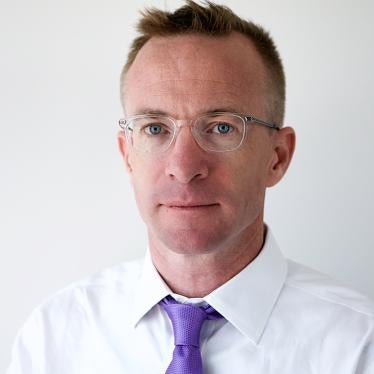Ceremony and cliché will abound as India's prime minister, Narendra Modi, visits Washington on September 29-30 to meet with President Barack Obama at the White House. There will be photo ops, gifts, and recitations about the leader of the world's largest democracy sitting with the leader of the world's oldest. But substantive matters are also to be discussed: Business. Weapons deals. Counterterrorism. Human rights and regional security issues will also be on the table.
There is a lot to talk about. In the broader South Asia context, the United States and India are powerhouses, with extraordinary influence over the political and human rights situations in the region. And their influence is at its apex when the two countries work together. The United States needs India's help even on matters in Afghanistan, and in securing broad support for UN action in places like Syria and North Korea.
But there will also be an opportunity for dialogue on each country's own human rights record. India, while welcoming warmer ties, could raise concerns about US practices with National Security Agency surveillance, or policies in Pakistan. Modi may also express concern about US trade policies--for instance efforts to extend pharmaceutical patent protections that would be at the expense of medical systems like India's that depend on cheaper generic alternatives.
Obama, for his part, can welcome recent comments by Modi condemning sexual violence, promoting education, and health. But he could also raise concerns about shrinking space for freedom of expression and association in India. In a recent address during the opening week of the UN General Assembly, Obama described how civil society worldwide is under attack, mentioning cases in places such as Egypt and China. What he didn't say is that these problems also exist in India, where government actors are increasingly harassing advocates, like environmental groups opposing development projects that could adversely impact communities. The trend started under the previous Manmohan Singh government, but has continued under the new one.
The United States should also articulate its anxieties about the potential for communal violence in India. President Obama cannot ignore this issue, since an enormous atrocity is hanging over the visit: the extensive communal violence in Gujarat in 2002, when Prime Minister Modi was chief minister of the state. What happened in Gujarat was horrific. Hindu mobs--in some cases with the acquiescence of police--killed well over 1,000 Muslims in a matter of days, destroyed thousands of businesses and homes, and displaced tens of thousands.
Human Rights Watch found extensive evidence of complicity by government officials through both acts and omissions. Modi's government in Gujarat never investigated or prosecuted alleged human rights violations. It was only through intervention by India's National Human Rights Commission, the Supreme Court, and local activists and victim groups that charges were filed; and prosecutors were able eventually to secure convictions for over 100 people, including a member of Modi's cabinet. Trials are proceeding in several other cases.
A Supreme Court-ordered investigation decided in 2012 that there was not enough evidence to prove Modi's direct complicity. However, some of the victims still have appeal cases pending, seeking to reopen the inquiry. And even if one gives Modi generous benefit of the doubt, he still faces serious questions about poor leadership during the events. The US banned Modi from travelling to the US as a result of the allegations against him, and only reversed the decision last year, when it became clear that he would become prime minister.
Some argue that discussing the Gujarat riots with Modi is diplomatically untenable. But Obama could express anxieties about the potentials for communal violence, especially as many Hindu nationalist supporters of Modi's party continue to embrace visions of hate and discrimination that led to the 2002 riots and ensuing violence. Some of Modi's supporters still make provocative assertions about Indian Muslim involvement in terrorism, and have made outlandish claims about Muslim plots to target Hindu girls in India for religious conversion--caustic speech that is creating a sense of insecurity among India's Muslims and other minorities.
Obama should raise these concerns with Modi, and urge him to ensure that his party's victory does not generate Hindu triumphalism that sparks communal tensions. It is possible to speak about these matters diplomatically. Obama can point out that US history has its share of extremists who have used hate speech at the expense of vulnerable populations. He can note that the responsibility of any good leader is to ensure that such extremists do not feel emboldened to challenge the rule of law and turn their speech into violence. That is a message Prime Minister Modi needs to hear.
John Sifton is Asia advocacy director at Human Rights Watch.







